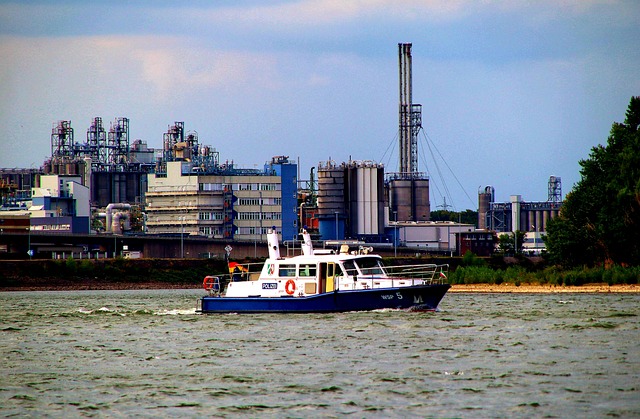Environmental crime, a global concern, demands robust strategies to combat pollution, deforestation, and wildlife trafficking. Healthcare Regulatory Litigation Strategies play a pivotal role in Environmental Justice by holding perpetrators accountable for ecological damage. These tactics involve evidence gathering, scientific analysis, and legal proceedings to deter violations, ensure compliance with regulations, and foster public trust. Specialized knowledge and innovative litigation methods are key to successful prosecutions, especially in complex trials with lengthy timelines. Global examples demonstrate the impact of these strategies in shaping public perception, holding offenders accountable, and encouraging proactive corporate compliance to protect ecosystems worldwide.
“Environmental Crime Trials: Uncovering Justice in a Complex World”
In an era of escalating environmental concerns, understanding and prosecuting environmental crimes is more crucial than ever. This article delves into the intricate landscape of environmental justice, exploring key aspects like defining and scoping these crimes, and the unique role of healthcare regulatory litigation in holding perpetrators accountable. We uncover effective strategies for prosecuting these cases, while also highlighting challenges and innovations that shape trial outcomes. Global perspectives offer valuable insights, showcasing successful stories and lessons learned, with a special focus on healthcare regulatory litigation strategies.
- Understanding Environmental Crime: Definition and Scope
- The Role of Healthcare Regulatory Litigation in Environmental Justice
- Key Strategies for Prosecuting Environmental Crime Cases
- Challenges and Innovations in Environmental Crime Trials
- Global Perspectives on Environmental Litigation: Success Stories and Lessons Learned
Understanding Environmental Crime: Definition and Scope
Environmental crime, a growing concern worldwide, encompasses a range of illegal activities that cause significant harm to the environment. It includes actions such as pollution, deforestation, illegal waste disposal, and wildlife trafficking. Understanding environmental crime involves recognizing its diverse forms and impact on ecosystems, communities, and public health. Healthcare regulatory litigation strategies play a pivotal role in addressing these crimes, ensuring accountability and deterring future violations.
By employing comprehensive approaches across all stages of the investigative and enforcement process, authorities can effectively target perpetrators. This includes gathering evidence, conducting thorough examinations, and implementing stringent penalties to avoid indictment. Across the country, successful environmental crime prosecutions have sent powerful messages, encouraging compliance with strict environmental regulations.
The Role of Healthcare Regulatory Litigation in Environmental Justice
Healthcare Regulatory Litigation plays a pivotal role in achieving Environmental Justice by holding accountable those who cause ecological damage through negligent or malicious practices. These legal strategies aren’t merely about financial compensation; they serve as a powerful deterrent, signaling to industries that environmental protection is non-negotiable. By leveraging regulatory frameworks and enforcement mechanisms, litigation can lead to significant changes in corporate behavior, ensuring compliance with standards aimed at preserving ecosystems and public health.
Beyond seeking redress through damages or injunctions, Healthcare Regulatory Litigation Strategies often involve complex investigations, uncovering evidence of wrongdoing that might otherwise remain hidden. This includes exposing the tactics employed by white-collar defendants and general criminal defense teams who manipulate regulatory systems for personal gain. Such transparency is crucial for fostering trust in environmental regulations and empowering communities to demand justice and sustainable practices.
Key Strategies for Prosecuting Environmental Crime Cases
Prosecuting environmental crime cases requires a strategic approach that combines specialized knowledge with effective Healthcare Regulatory Litigation Strategies. One key strategy is to establish clear links between the environmental harm and its impact on public health, leveraging scientific evidence and expert testimony. This not only strengthens the case but also highlights the broader implications for the respective business, philanthropic, and political communities.
Additionally, successful prosecution often involves building a robust record of corporate conduct, including internal communications, decision-making processes, and compliance history. By doing so, prosecutors can demonstrate willful neglect or intentional disregard for environmental regulations, which is crucial in securing harsher penalties. This comprehensive approach ensures that environmental crime cases are not only won but also set precedents for deterring future violations within the general criminal defense arena.
Challenges and Innovations in Environmental Crime Trials
Environmental Crime Trials present unique challenges due to their complex nature and the often vast timescales involved. One significant hurdle is gathering evidence that can withstand rigorous scrutiny, as environmental impacts may not always be immediately apparent or easily quantifiable. This requires innovative Healthcare Regulatory Litigation Strategies to unearth hidden damage and connect it to specific defendants. Additionally, these trials demand a deep understanding of scientific principles and their legal implications, making them high-stakes cases that necessitate robust white collar defense mechanisms.
The prosecution must navigate through intricate ecological systems and economic landscapes to establish culpability in white collar and economic crimes. This involves leveraging cutting-edge technology and data analytics to present compelling cases. Experts in various fields, from environmental science to economics, play a pivotal role in these trials. As such, successful prosecutions require not just legal acumen but also a sophisticated grasp of the underlying scientific and financial dynamics that drive environmental crimes.
Global Perspectives on Environmental Litigation: Success Stories and Lessons Learned
The global landscape of environmental crime trials has evolved significantly, with nations adopting diverse approaches to tackle ecological transgressions. Success stories from around the world offer valuable insights into effective healthcare regulatory litigation strategies. Countries like the United States, Europe, and Australia have set precedents in prosecuting environmental offenders, demonstrating that strong legal frameworks can deter pollution and preserve natural resources. These cases not only hold companies accountable for their actions but also shape public perception, fostering a culture of environmental stewardship.
Through robust investigative techniques and innovative enforcement processes, these trials have shown that holding polluters liable is both just and feasible. The all-encompassing nature of these investigations, which span from the initial complaint to post-trial monitoring, ensures that justice is served at every stage. For his clients, avoiding indictment becomes a strategic consideration, prompting proactive compliance measures to stay ahead of regulatory scrutiny. These lessons learned can guide countries worldwide in refining their environmental litigation practices, ultimately leading to more effective protection of our shared ecosystems.
Environmental crime trials play a pivotal role in holding perpetrators accountable for their impact on our planet. By understanding the scope of these crimes, leveraging strategies like healthcare regulatory litigation, and addressing challenges with innovative approaches, we can ensure justice is served. Global perspectives offer valuable lessons, demonstrating that concerted efforts and collaboration are essential to tackling environmental degradation. Embracing these key areas—from defining the crime to implementing successful litigation strategies—is crucial for a greener and more just future.






